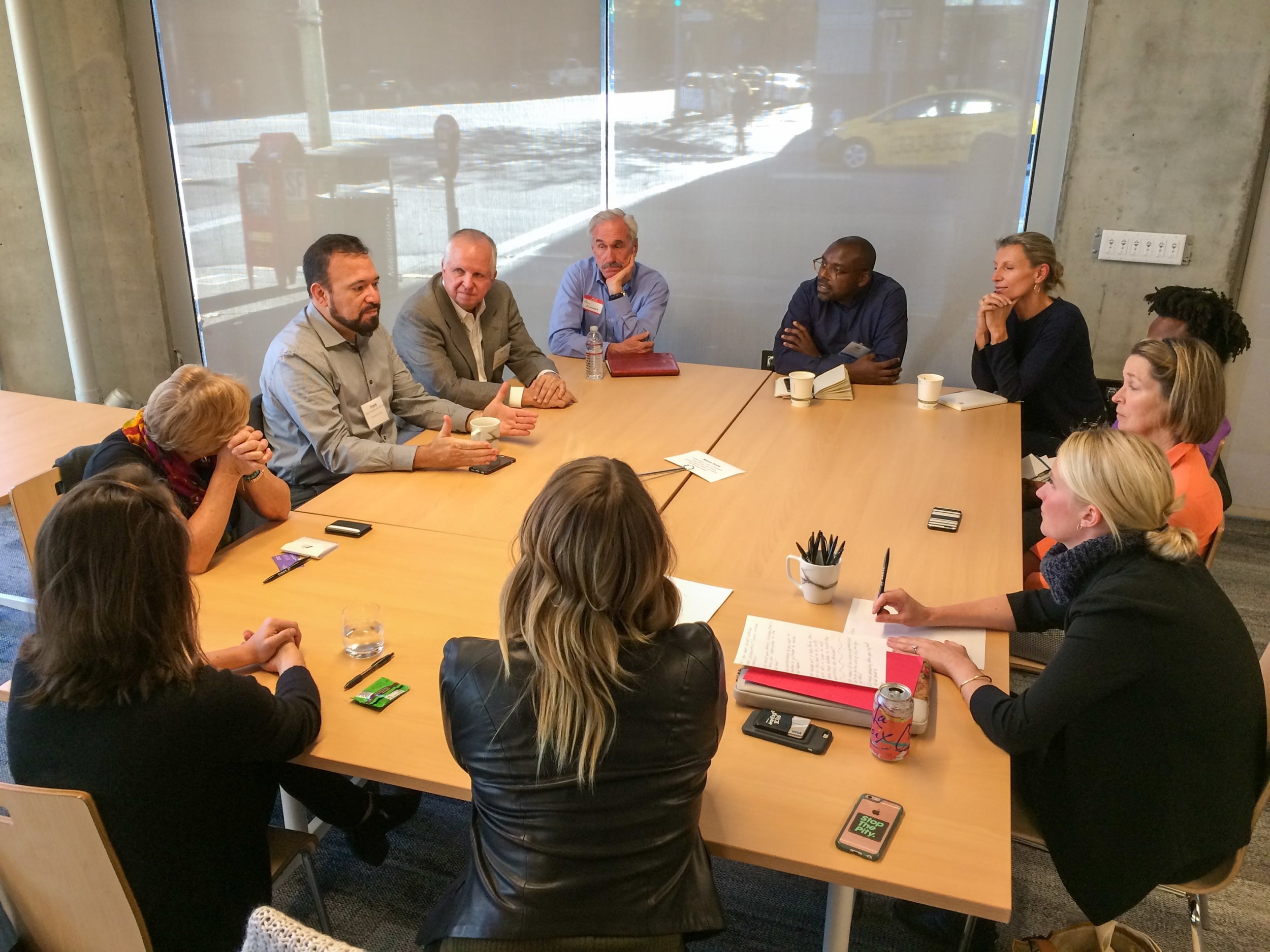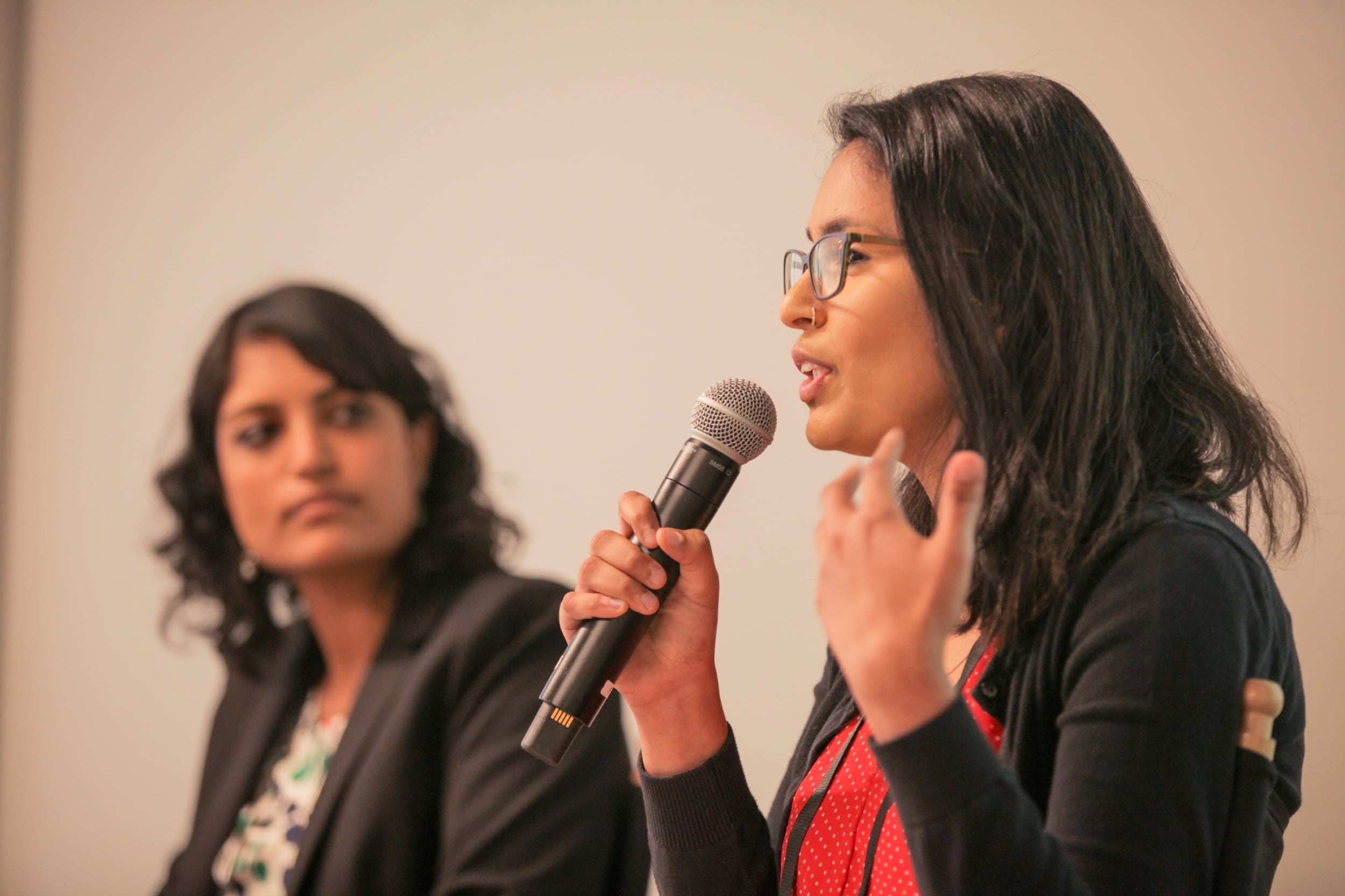
Healthy Individuals & Communities

In a competitive job market, social impact programs are a key way to attract and retain top talent, connecting members of the workforce to the purpose they hope to find in their careers. A recent survey by Deloitte found that Gen Z and Millennial employees in particular are especially committed to racial justice, equity, and climate action, and want their employers to uplift these issues through their social impact programs and professed values. Done right, social impact programs can be an effective employee engagement tool, both in traditional and hybrid work environments, ensuring employees feel deeply involved in the company’s social impact strategy and engaged and motivated at work.

Tidesters organized a day of service supporting The Cultural Conservancy, a Tides Foundation grantee, on Wednesday, August 24th, 2022. We enjoyed hours of weeding, wheelbarrowing, mulching, digging, blackberry harvesting, and more in support of their flourishing farm, Heron Shadow.
Here are five ways you can leverage your corporate philanthropy and social impact programs to keep employees engaged and motivated:
1. Articulate a compelling social impact strategy.
Companies that clearly communicate how their social impact strategy is linked to their corporate purpose and business model create a culture that is committed to impact and generate new ways for employees to find meaning in their work. Often, intertwining social impact strategy with core business operations, like LEGO Group’s commitment to sourcing and using all sustainable materials in their product line by 2030, can amplify impact while meeting business goals, contributing to ESG and other good governance metrics, and ensuring all employees feel like they’re contributing to a shared social impact goal, regardless of their individual role within the company.
2. Make the impact visible.
The most effective social impact teams will make wins highly visible within the organization, creating opportunities to connect employees to causes and communities they care about. Companies that articulate their impact effectively prioritize communicating it externally (through press releases and ESG or impact reports) and internally (through the company’s intranet, statements from leadership, and events). When a CEO or other high-profile member of the leadership team shares a company’s social impact wins, it makes it clear that social impact and corporate philanthropy are valued at the highest levels of the company and, when done right, it ensures every employee feels they have a role in contributing to those outcomes. Companies should also consider bringing their nonprofit partners into their corporate community by featuring them at corporate events; providing space for fundraising or other events; or even offering available office space for free (like Google’s Community Space) or at a reduced cost to further make impact visible.

3. Offer a robust and engaging employee matching program.
When companies offer robust charitable donation matching incentives that allow employees to play a part in allocating their philanthropic budget, employees feel more invested in their company’s social impact strategy. Beyond simply offering a charitable match as an employee benefit, there are a number of ways to actively engage employees and sustain a culture of giving through matching campaigns and other creative perks. Some companies choose to introduce their giving culture as part of the onboarding process by offering donation credits as a new hire incentive, emphasizing the importance that the company puts on its social impact programming from the very beginning. There are also natural opportunities throughout the year to set up specific employee giving events, such as Giving Tuesday or thematic campaigns run by employee resource groups (also known as ERGs or affinity groups) that select potential partners to highlight during particular moments of action such as Black History Month or Pride. Through our networks, Tides can help recommend organizations closest to the issues and communities your employees care about to help direct resources where it is most needed and will drive the most impact. Working with employee matching platforms including Benevity and Deed, companies have the opportunity to expand their impact by directly involving their employees in their culture of giving.
4. Create meaningful volunteering opportunities for employees.
Companies that seek to engage their employees in their social impact work often curate meaningful volunteer opportunities and encourage employees to offer their time and talent supporting causes they care about. While some companies choose to create thoughtful and mutually beneficial volunteering opportunities for a large number of employees at once, others have found ways to incentivize individual employees’ volunteer efforts. For example, companies pursuing this tactic might provide paid volunteer time off (VTO), offer matching funds to nonprofits alongside employee volunteer time, or provide longer-term sabbatical opportunities where employees can take extended periods of time away from their work responsibilities supporting a nonprofit they care about with pro bono consulting. Whenever a company is developing a volunteer program, Tides recommends finding ways to minimize the burden that coordinating volunteers might cause for the nonprofit partner by managing volunteers in-house and providing general operating support funding to the organization alongside the volunteering initiative. Above all, Tides strongly recommends — and can help companies to realize — truly listening to and centering the needs of the nonprofits to ensure that volunteering is meaningful and helps a nonprofit achieve their mission.
5. Involve employees in the grantmaking process.
Companies seeking to engage employees directly in their philanthropic giving often create employee-led grantmaking programs where employees can champion their favorite organizations and causes or provide ERGs with a budget to designate funding toward nonprofits that resonate with diverse employee groups. By running employee-led grantmaking initiatives, employees are given the opportunity to raise the profile of issues and organizations that matter most to them, feel a sense of agency contributing to their company’s philanthropic efforts, and connect with other employees who are also passionate about social impact. By entrusting employees and resource groups with significant funding, companies demonstrate that they trust employees to know what challenges their communities face and value their commitment to the company’s social impact goals.

Centering the principle that shifting and building power of proximate leaders in communities closest to an issue is essential, Tides supports companies in designing social impact programs that drive impact and keep employees engaged with the company’s purpose. Through our experience working with companies at all stages of their social impact journeys, we have the expertise to support you in designing and scaling your impact programs with an eye for engaging your workforce, be that through designing an inspiring community-centered social impact strategy, standing up an employee matching program, or more. Contact us to learn more about our approach.

Healthy Individuals & Communities

Our Community

Philanthropy

Read the stories and hear the voices of social change leaders fighting for justice.